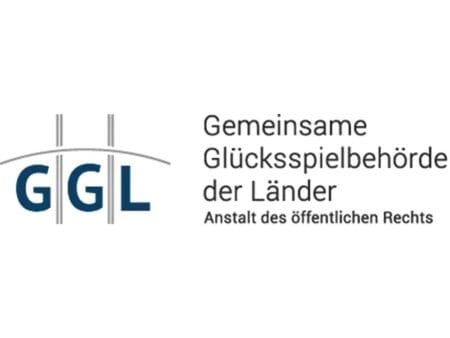Table of Contents
- A Brief History of Online Gambling Regulation in Canada
- Regulatory Bodies Overseeing iGaming in Ontario
- Recent Regulatory Updates in 2025
- Timeline of Significant Regulatory Updates
- Gambling Tax Rates in Ontario
- Implications for Players
- Implications for Operators
- The Black Market: An Overview
- Conclusion
- FAQs about Ontario’s iGaming Regulations
A Brief History of Online Gambling Regulation in Canada
Canada’s journey towards regulated online gambling has been gradual. Initially, the Criminal Code prohibited most forms of gambling. However, over time, provinces gained the authority to regulate gambling within their jurisdictions. Ontario led the way by launching its regulated iGaming market in April 2022, allowing private operators to offer online gambling services under strict regulations. This move marked a significant shift from government-run monopolies to a more open and competitive market.
Regulatory Bodies Overseeing iGaming in Ontario
In Ontario, iGaming activities are regulated by two main bodies: the Alcohol and Gaming Commission of Ontario (AGCO) and iGaming Ontario (iGO). The AGCO is responsible for establishing regulatory standards and ensuring compliance, while iGO manages the commercial agreements with private operators. Together, they ensure that all licensed betting sites in Ontario operate fairly, responsibly, and transparently.
Recent Regulatory Updates in 2025
In 2025, Ontario’s iGaming landscape saw several significant updates:
- Tax Rate Increase: The government raised the tax rate for licensed sports betting operators from 20% to 22.5% of gross gaming revenue (GGR) to boost public funds without discouraging operator investment.
- iGO’s Potential Independence: Discussions emerged about iGaming Ontario potentially separating from the AGCO to become an independent entity, which could allow it to expand beyond Ontario and even Canada.
- Enhanced AML Measures: There has been an increased federal focus on anti-money laundering (AML) efforts to combat illicit activities through online gaming sites.
Timeline of Significant Regulatory Updates
- April 2022: Ontario launches its regulated iGaming market, ending the grey market era.
- 2023: Introduction of new responsible gambling measures and stricter compliance requirements for operators.
- 2024: Expansion of game offerings, including peer-to-peer games like poker and fantasy sports.
- 2025: Tax rate increase for sports betting operators and discussions about iGO’s potential independence.
Gambling Tax Rates in Ontario
For Players
In Ontario, amateur gamblers do not pay taxes on their gambling winnings, whether from land-based or regulated online casinos. This includes lottery winnings and sports betting.
For Operators
Licensed online betting operators in Ontario are subject to a tax rate of 22.5% on their gross gaming revenue (GGR) as of 2025. This rate was increased from the previous 20% to enhance public revenue without deterring operator participation.
Implications for Players
The regulated iGaming market in Ontario offers several benefits for players:
- Safety and Fairness: Licensed operators must adhere to strict standards, ensuring fair gameplay and protection of player funds.
- Responsible Gambling: Operators are required to implement responsible gambling measures, including self-exclusion programs and deposit limits.
- Variety of Options: Players have access to a wide range of games and betting options from multiple licensed operators. You can find all licensed betting sites in Ontario directly on iGaming Ontario’s website.
- No Tax on Winnings: Amateur players enjoy their winnings tax-free, enhancing the appeal of legal betting sites in Ontario.
Implications for Operators
Operating in Ontario’s regulated iGaming market presents both opportunities and responsibilities:
- Market Access: Operators can tap into a lucrative market with a growing number of online gamblers.
- Compliance Requirements: Operators must meet stringent regulatory standards, including responsible gambling measures, data protection, and AML protocols.
- Tax Obligations: The increased tax rate of 22.5% on GGR requires careful financial planning to maintain profitability.
- Licensing Process: Obtaining a license involves a thorough application process, including registration with the AGCO and a commercial agreement with iGO. In total, the cost to acquire a gaming license from iGaming Ontario starts at CAD $100,000 per site annually, with potential additional costs for investigations and regulatory compliance.
The Black Market: An Overview
Despite the regulated market, the black market for online gambling persists:
- Popularity: Some players continue to use unlicensed offshore sites due to perceived better odds or game variety.
- Risks: These sites lack regulatory oversight, posing risks such as unfair games, lack of player protection, and potential loss of funds.
- Regulatory Response: Ontario’s government has taken steps to combat the black market, including legal actions against unlicensed operators and public awareness campaigns.
Conclusion
Ontario’s iGaming regulations in 2025 reflect a mature and evolving market that balances player protection with operator opportunities. The province’s approach serves as a model for other jurisdictions considering the legalization and regulation of online gambling.
FAQs about Ontario’s iGaming Regulations
No, amateur gamblers in Ontario do not pay taxes on their gambling winnings.
You can find all licensed betting sites in Ontario directly on iGaming Ontario’s website.
The minimum age is 19 years old.
Licensed operators must offer tools like self-exclusion programs, deposit limits, and access to support services.
Operators must register with the AGCO and enter into a commercial agreement with iGO. The cost starts at starts at CAD $100,000 per site annually.
The tax rate for licensed sports betting operators is 22.5% of GGR.
While technically possible, it’s not recommended due to lack of regulatory protection.
Yes, peer-to-peer games like poker and fantasy sports have recently been approved by AGCO and iGO.
The AGCO establishes regulatory standards and ensures compliance among operators.
iGO manages commercial agreements with private operators and oversees the regulated market.
Ontario’s iGaming market generated CA$3.2 billion in revenue in the 2024-25 fiscal year.















